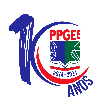Banca de DEFESA: NELIANE MOTA RABELO
Uma banca de DEFESA de MESTRADO foi cadastrada pelo programa.DISCENTE : NELIANE MOTA RABELO
DATA : 25/03/2019
HORA: 11:00
LOCAL: Miniauditório NTB
TÍTULO:
ICT IN UNIVERSITY TEACHING TRAINING: an investigation into undergraduate courses integrated in mathematics and physics and a degree in educational computing
PALAVRAS-CHAVES:
Information and Communication Technologies; College education; Teacher Training.
PÁGINAS: 171
GRANDE ÁREA: Ciências Humanas
ÁREA: Educação
RESUMO:
This work presents considerations about a research in development, related to the use of information and communication technologies (ICT) in university education. The society undergoes significant changes in its different dimensions, which projects a great influence on information and communication technologies (ICT) and, consequently, triggering alternative and innovative communication processes. In particular, education is modernized, mainly due to extremely fast and dynamic technological changes and transformations, thus requiring alternative and creative teaching processes capable of producing satisfactory and meaningful learning for students. In this sense, the objectives of this work are aimed at investigating how students of the Integrated Licentiate in Mathematics and Physics and Licenciatura degree in Educational Informatics of the Federal University of the West of Pará, Santarém / PA, use and produce knowledge with the use of TIC aiming at its academic formation. Through this conception, it is assumed that it is possible to infer about conceptions and understandings about the use, implementation and operation of technological resources, in undergraduate classes aimed at teaching. The methodological procedures are based on the extraction of information, together with the students of this course, through participant observation of experimental practices in the classroom, testimonials and application of standardized questionnaires, documentary analysis of the Pedagogical Course Project (PPC) of the LIMF course and analysis of information contained in the teaching plans of the subjects related to the practical component and that have repercussions of technological applications focused on the training processes, object of the course. The information obtained, through the mentioned instruments, will be correlated with the study proposal based on the content analysis of Bardin (2011). The sample of participants was composed of 15 apprentices of the LIMF course and 14 apprentices of the LIE course. As for the theoretical basis conveyed to this research, we highlight considerations about the emerging technological paradigm pointed out by Valente (1999) and Moran (2007), besides punctuating pertinent considerations to conceptions of teacher formation, for the technological era, discussed in the works of Kenski (2001, 2003, 2007, 2009, 2012 e2017) and Masseto (1998, 1994). The initial results project different students' perceptions, according to their return records, of the applied questionnaire. Such testimonies envision technological practices that are still far from their reality in the classroom and that, to the teacher, become major challenges still in the present time. There is hope that they may learn less traditionally. They hope that the teacher, by inserting in his classes dynamic forms that facilitate the teaching-learning process, will allow to promote conditions for future teachers in their initial formation to build knowledge about the use of existing technological resources, based on their understandings and who are able to associate them to their teaching practice using the available resources, thus becoming a multifaceted professional.
MEMBROS DA BANCA:
Interno - 324704 - EDILAN DE SANT ANA QUARESMA
Interno - 2383992 - GILSON CRUZ JUNIOR
Presidente - 1432784 - JOSE RICARDO E SOUZA MAFRA
Externo à Instituição - JOÃO BATISTA BOTTENTUIT JUNIOR - UFMA




